The craze for hiking and ecotourism is a response to environmental concerns and a move away from saturated destinations. To keep pace with this trend, governments are developing new, more selective offers.
Text: Bernard Pichon
Following on from the COP debates, a handful of the world’s leading hotel groups – Accor, Radisson, NH, etc. – are working on a general framework to encourage sustainability worldwide. There is talk of a multi-stage journey towards zero emissions. For a long time now, marketing has been emphasizing energy savings, short circuits, organic products and anything else that might ease the conscience of holidaymakers concerned about controlling their impact on the planet. We all remember the invitation to “save the whales” by renouncing the daily change of bath towels.
Polynesian Eden
As this appeal to goodwill was not as effective as expected, new, much more radical initiatives emerged.
The most emblematic example of this new trend can be found a short distance from Tahiti, on Tetiaroa atoll, acquired by Marlon Brando in the 1960s (during the filming of The Mutiny on the Bounty). A precursor in the field of ecology, the star set out to do everything in his power to preserve this plot of land with its high tourist potential. “I want it to remain forever a place that reminds Tahitians of who they are and who they were in centuries gone by” (sic).
Today – and after a few ups and downs – the main islet skilfully conceals beneath the coconut palms what some – Brad Pitt, Obama or the renowned Forbes travel guide – consider to be the ultimate eco-responsible robinsonnade. Welcome to the legendary Hotel The Brando!
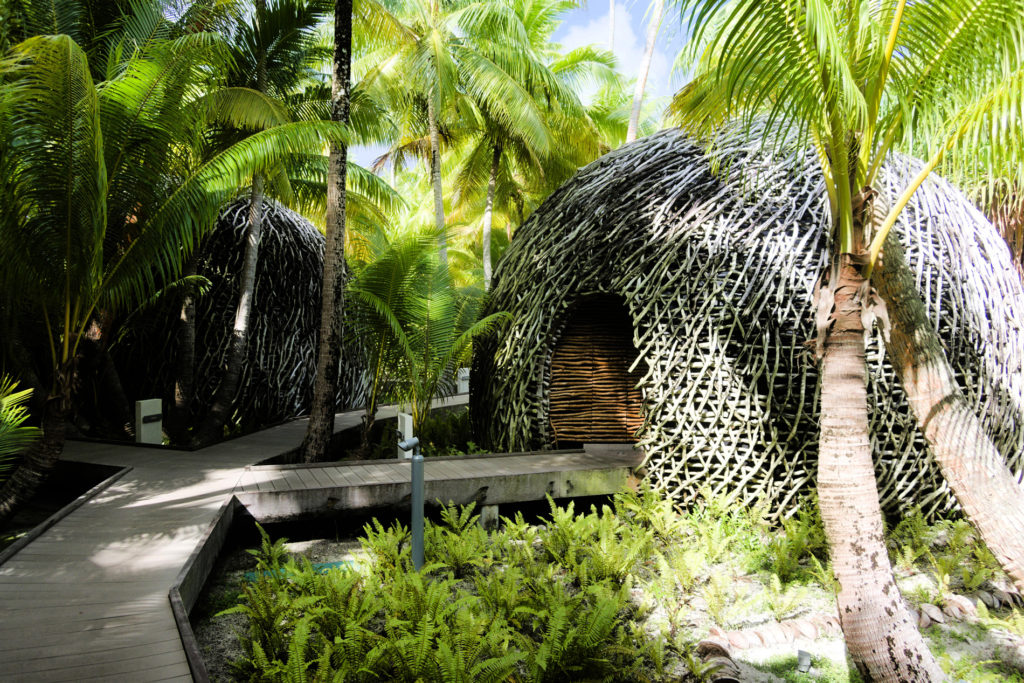
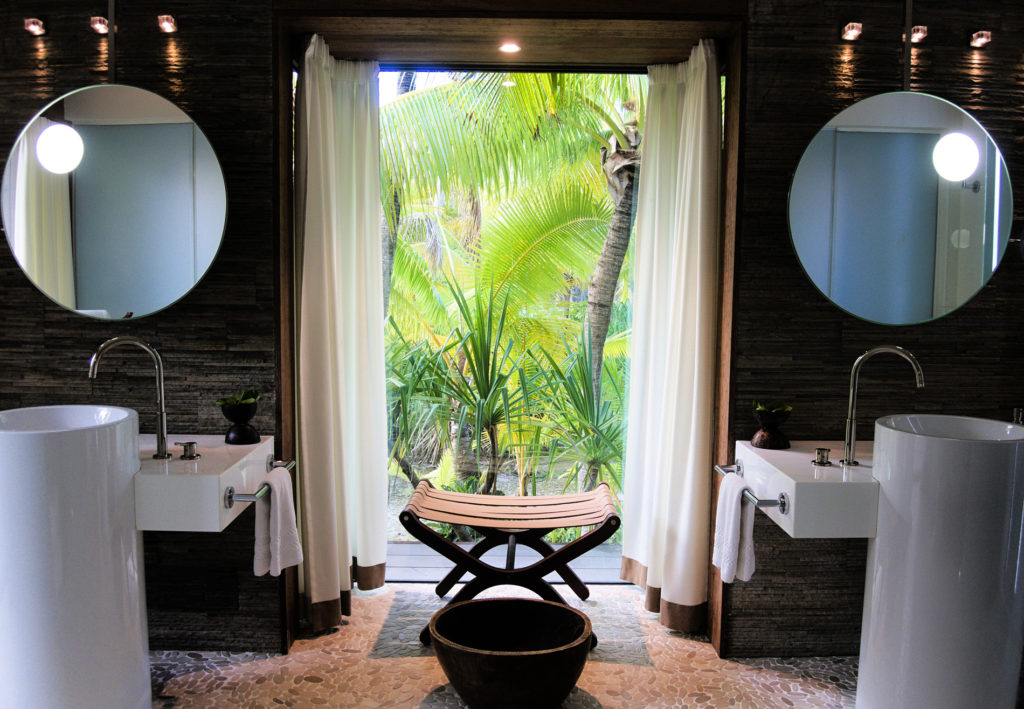
Challenge met
It took a motivated entrepreneur to follow the Godfather’s orders. It was an almost impossible mission for Richard Bailey, already the creator of several fine establishments in Polynesia: to set up an extremely comfortable vacation complex on this volcanic confetti in the middle of the Pacific, while drastically controlling the consumption of water, energy and single-use products.
The result is stunning. Knowing that air conditioning is the main consumer of electricity in these latitudes, not only were hundreds of solar panels installed along the private airstrip, but an ingenious heat exchange project was also developed, pumping seawater from deep below the surface. Called SWAC, this system was awarded the Solar Impulse label last year – initiated by Bertrand Piccard – which rewards efficient, ecological and economically viable solutions.
Anne-Laure Amabile, a young agricultural engineer, invites the privileged guests of this exclusive theater to explore its backstage. In addition to the impressive technical facilities (wastewater treatment plant, compacting of packaging for recycling, glass crusher for pavement surfacing, composting of all food scraps, etc.), there are beehives, an organic vegetable garden and workshops for the recycling of virtually all types of waste.
Far Eastern initiatives
In the West, our explorer’s dreams still nourish the cliché of territories whose virginity is proportional to their remoteness, as if we had to aim for the end of the world to gain a chance of finding paradise. The reality on the ground is that these areas have become extremely rare. But a number of well-established countries are now capitalizing on this fantasy and reorienting their post-Covid tourism offer.
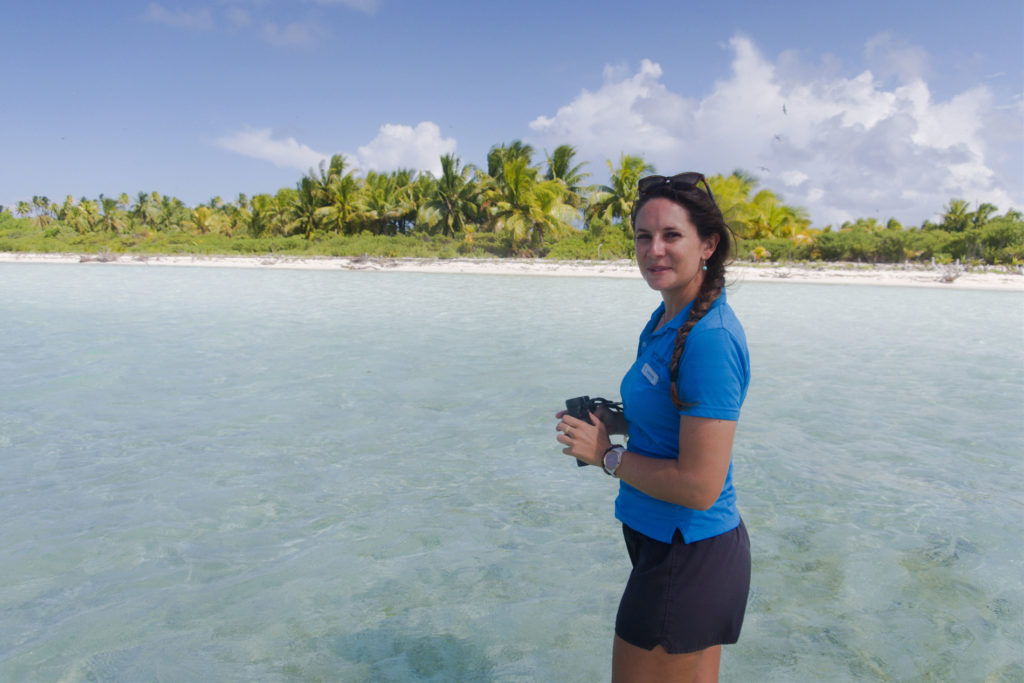
In Japan
Unspoilt natural landscapes can be admired in 34 national parks. The southern island of Okinawa is renowned for its flora and fauna. It contains World Heritage-listed subtropical evergreen forests and is home to more than 80% of the country’s bird species (Kin alone has 270). To the north, the Shirakami-Sanchi mountains dominate a beech forest that has remained virtually untouched for thousands of years.
While ecological initiatives generally focus on protecting natural resources, Japan intends to add economic and socio-cultural sustainability. The aim is to ensure that communities – particularly rural ones – are not left behind in the race for economic growth, and that their specific characteristics are safeguarded. Nature lovers can discover daily life on organic farms during stays that may involve voluntary work.
In the Philippines
Imagine an immense archipelago made up of 7,641 islands, of which just over 2,000 are inhabited! Among them, a jewel popularized by the backpackers of the 20th century: Boracay… This craze was to drain hordes of vacationers, to the point of transforming this little Eden into a veritable cesspool (in high season, 40,000 tourists could stay there at the same time).
Faced with this disaster, 5 years ago, Philippine President Rodrigo Duterte abruptly ordered the “temporary” closure of the site for 6 months. It had to be cleaned up, its anarchic hotel development regulated and its wastewater treated.
Thanks to Covid, this “provisional” closure was extended to the point of leading to a veritable resurrection of Boracay: its waters have once again become crystal-clear, to the great relief of the seabed and its fauna (sea turtles in particular). The territory has adopted new rules, such as a ban on smoking and drinking alcohol on its white sandy beaches, and controls on construction and visitor numbers (now no more than 19,000 per day).
The recent reopening of the island is a relief for tens of thousands of locals living on tourism who had found themselves without income in 2018. Let’s hope the lure of profit doesn’t come back to spoil the picture!
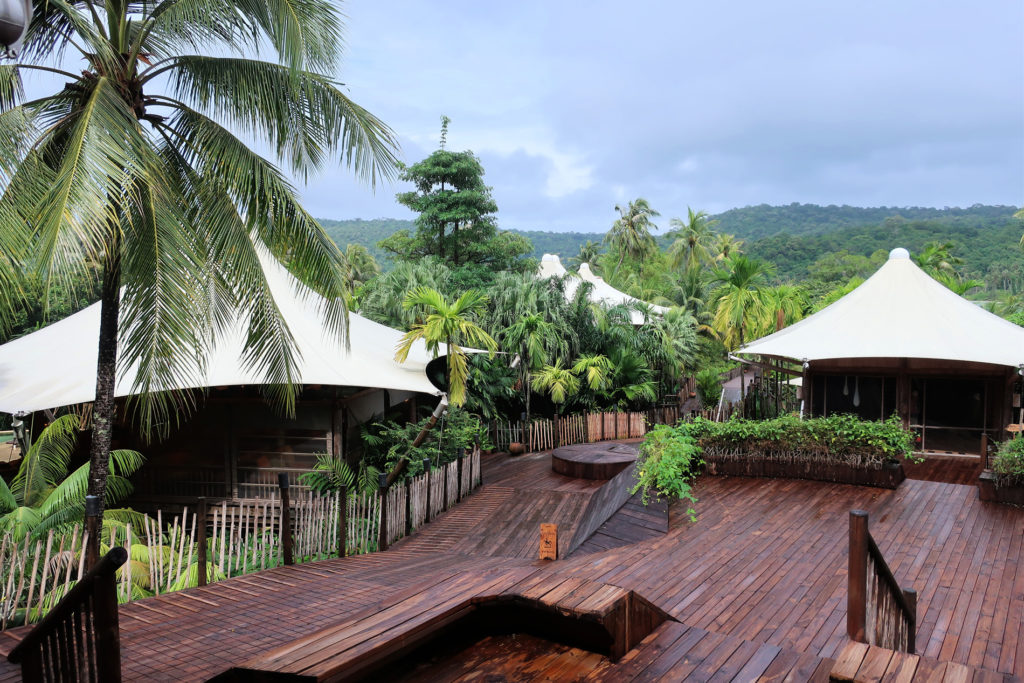
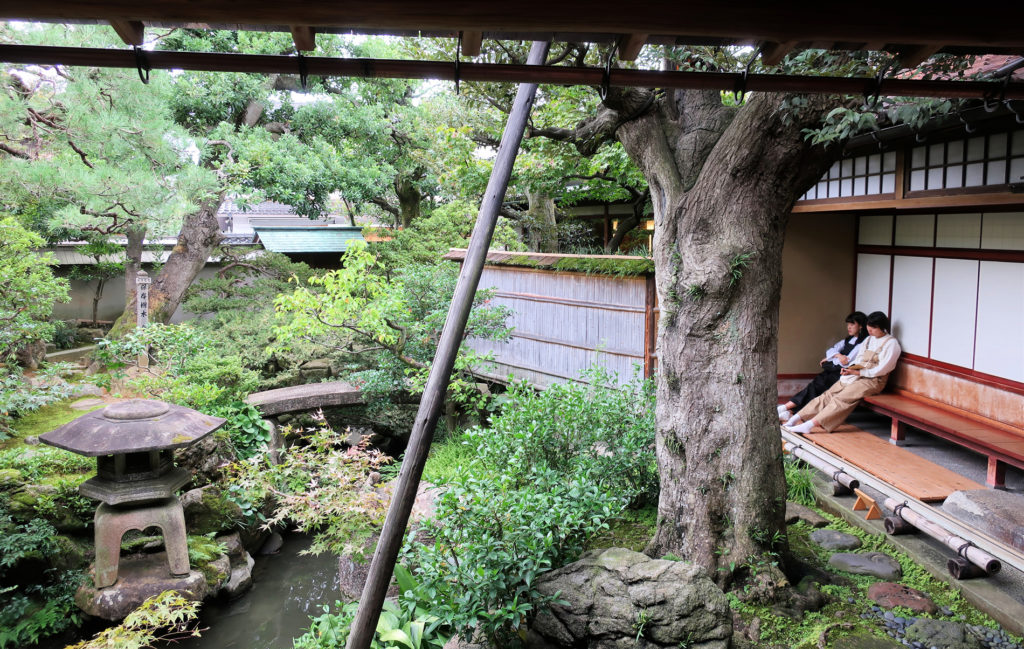
In Thailand
Scalded by the ravages of over-tourism – Pattaya, Maya Beach, etc. – Thailand is also promoting sustainability and highlighting less popular regions.
According to SEM Phiphat Ratchakitprakarn, Minister of Tourism and Sports, “After the pandemic, sustainable and inclusive growth has become our priority”.
In the wake of this, Ko Mak – in Trat province – embodies the country’s first low-carbon destination.
Thailand is also positioning itself as a wellness destination, with a wide range of fitness and anti-aging programs. In this sector, the government is highlighting the magnificent Andaman coastline.
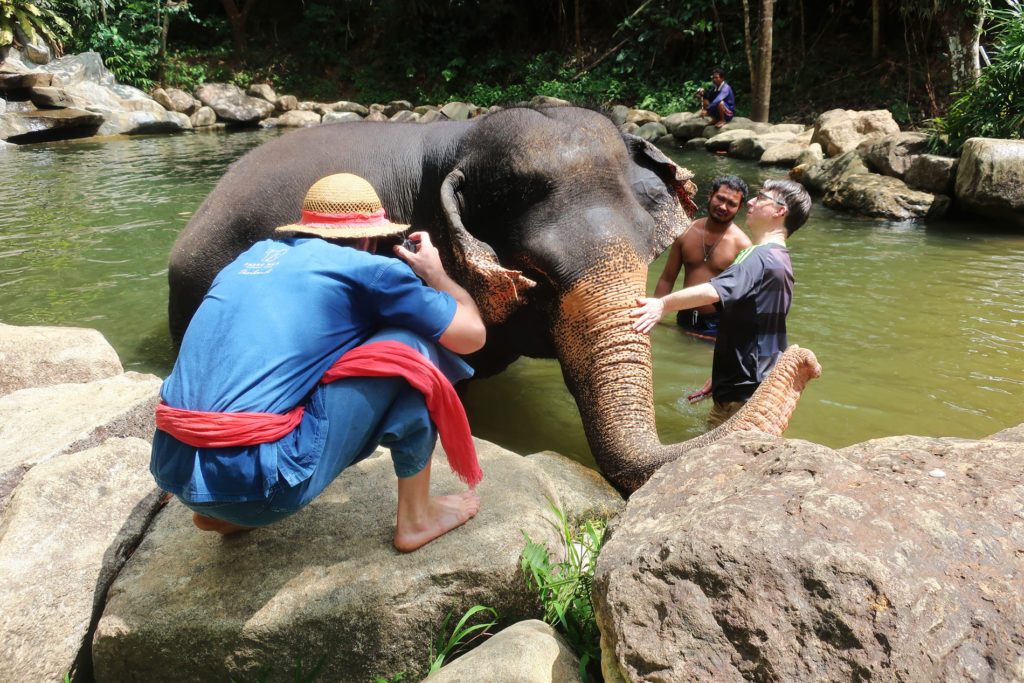
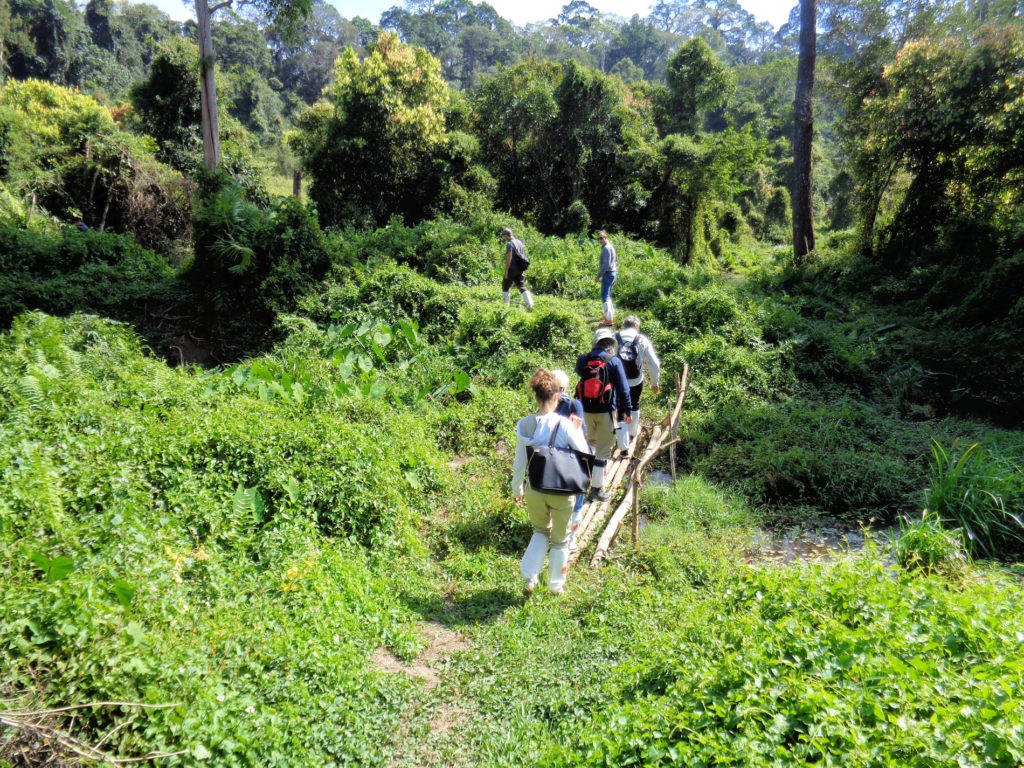
In Vietnam
Ecotourism is also on the rise in this country, with visitors increasingly concerned about minimizing their impact. The first of 63 provinces/cities to apply green tourism standards, Quang Nam marks a major change on the Central Heritage Route. With the help of the Swiss Sustainable Tourism Program (SSTP) and 25 other international organizations, the criteria for this reorientation have been listed. These include hotels, homestays, travel agencies and tourist sites. In the same vein, Vietnam is multiplying its suggestions for eco-responsible adventures: sailing along the Ngo Dong River, hiking in Cuc Phuong National Park, cycling in the town of Mai Chau or in the Mekong Delta.

